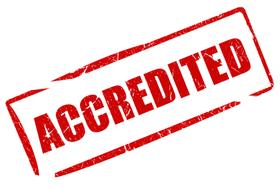As tuition costs continueto increase at higher education institutions across the country, many students are considering transitioning to community college once they earn their high school diploma. Although these schools were once considered below par in postsecondary education, the quality provided by many community colleges has been on track with many four-year schools today. The focus on community colleges by the Obama Administration has resulted in additional funding and industry-focused training that increases employment opportunities once the degree is earned. We have eight reasons why community college might be the best choice for some high school graduates.
Affordability
Although tuition is getting more expensive, community colleges are still significantly more affordable than most four-year institutions. The average annual rate to attend a four-year university could run as high as $30,000 or more, while the annual tuition at a community college probably won’t cost much more than $5,000. In addition, many community college students continue to live at home while taking classes, saving money on room and board.
Based on our prior calculations comparing a community college with a private four-year university, you could first save $80,000 by attending community college for two years!
With more affordable prices overall, community college students often find they can foot the bill for their education without taking on significant debt before graduation. Considering that many university students graduate with debt in the six-figure range, this is a huge financial advantage both during and after graduation.
Easier Admission Policies
According to the Sallie Mae website, community colleges typically have an “open door” admission policy, meaning anyone can register for the school as long as he has a high school diploma or GED. Although community colleges may ask for SAT or ACT scores as a part of the admission process, these tests do not typically keep students out of the school like they might with many four-year institutions. Community colleges also provide placement examinations, primarily used to determine whether students require any remedial courses before moving into the college-level curriculum.
For high school graduates with less-than-stellar GPAs, community colleges offer a chance to start postsecondary education. Students who can pull up their grades during the community college years may have a better chance of moving to a four-year school to finish a degree program.
Flexibility
High school graduates who need to work while in college may discover that community college schedules are much more flexible than those provided by a four-year institution. These schools are accustomed to catering to adult students juggling professional and family responsibilities and their studies. Community colleges typically offer evening, weekend, and online options to help these students work their academics around the rest of their activities.
Smaller Campus
Some students have difficulty transitioning from a small high school to a large, impersonal university. These students may find the smaller campus and classes of a community college are more comfortable right after their high school years. Community colleges typically offer more personalized attention, from the admissions office counselors to the classroom professors. A community college student reporting in Studenomics stated that some of his classes had 30 students or less, and as many as 75 percent of his professors knew him by name. In addition, the smaller campus size may seem less intimidating for a high school graduate to navigate successfully.
Easy Transitioning
High school graduates who are unsure of what they want to study or intimated by the idea of a university may find community college an easier transition. These students can take various general courses to find their area of interest in an environment that is often more supportive than a larger school. Once students spend two years at a community college, they are often better prepared to move to the next step, whether it is a four-year school to finish a bachelor's degree or the professional workforce with their training in hand.
Hands-On Experience
Because community colleges tend to focus on preparing students for the professional world, they offer many hands-on experiences that might not be available at a four-year school. For example, students in the dental hygiene program might work in an actual dental clinic when not in class, while cosmetology students might actually work with clients right in the classroom environment. Internships and volunteer opportunities often abound at two-year schools, giving students on-the-job training that beefs up their resume and prepares them for a career.
Networking Options
Since community colleges frequently partner with local industries, employers from those industries are often right on the community college campus, interacting with students and staff. For students who know the industry they want to move into after college, this environment provides the perfect opportunity for networking with potential employers and others already working in the field. USA Today reports that community college students often find internships and mentoring opportunities through campus networking.
Post-Degree Options
After community college, graduates have several post-degree options to pursue. Some move directly into the workforce after receiving the training necessary to work in the industry of their choice. Others transfer to a four-year school, continuing their postsecondary education all the way to a bachelor's degree or higher. No matter what your future aspirations might be, community college may be the logical next step on the path to your career or education plans.
The community college has become a viable option for many high school graduates today. Whether you know what you want to do when you grow up or simply want time to explore your options, the local community college may be the right start on the road to a bright future.
Questions? Contact us on Facebook @communitycollegereview.















